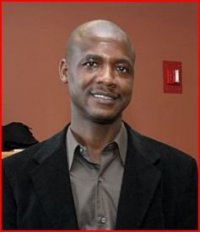
(JollofNews) – Aung San Suu Kyi has been lionized as a champion of human rights and defender of civil and political liberties by the civilized world. She later became the Nobel Peace winner who promised her people freedom. The Nobel Peace Prize winner once hailed as “Myanmar’s Joan of Arc” and spoken of in the same breath as South Africa’s Nelson Mandela and Mahatma Gandhi of India.
For years, Suu Kyi had courageously defied the military, suffering 15 years of house arrest and separation from her British husband and two sons to helm her National League for Democracy to a landslide victory in 2015 elections. Often referred to as “The Lady,” she retains popularity among the public as the liberator from half a century of military oppression.
When she was in the opposition she was so articulate, so vocal, but suddenly now we are faced with silence. Now that Myanmar is back on the democratic path, everyone expects that there should be more openness, but this has not happened. Since assuming office in April 2016, Suu Kyi has earned a reputation for being aloof and controlling of information.
So, why is she allowing thousands to be ethnically cleansed? Her silence in this matter implies she is a political opportunist, political hypocrite and a coward for sanctioning genocide acts to further appease the military for political power.
Suu Kyi continues to dishonor the Nobel laureate title. Her refusal to rein in nationalist Buddhist thugs and stand up for minorities in Myanmar is an absolute disgrace. Her silence in abating and approving the extermination of an ethic group implies her culpability like the murderers doing these horrible acts.
She is a disgrace and should be strip of her Noble laureate title and bring her to the International Criminal Court to be answerable to the atrocities for ignoring state violence against ethnic minorities and Muslims, continuing to jail journalists and activists, cowing to Myanmar’s still-powerful generals, and failing to nurture democratic leaders who could step in when she, now 72, exits the scene. Some conclude that Suu Kyi, who espoused democracy with such passion, always possessed an authoritarian streak which only emerged once she gained power.
Explanations for why she has changed, or faltered in upholding previously avowed goals, are starkly disparate: she is variously cast as a tragic heroine fighting impossible odds, and a closet authoritarian with a soft spot for the military.
Suu Kyi herself has often said she inherited an affinity for the armed forces from her father Gen. Aung San, a military hero who fought for independence from Britain.
She is not a prisoner of the military. What is lacking, is her moral courage in addressing human rights and the ability to tackle other problems outside the power grid of the military, such as the economy. Meanwhile, the military is preparing itself for the 2020 elections.
Mark Farmaner of the human rights group Burma Campaign U.K. says that while Suu Kyi may be constrained by the political situation, there are many areas where she has the freedom to act and has not done so.
“There are problems which will take years to resolve, but freeing political prisoners, repealing repressive laws and ending aid restrictions to displaced Rohingya can be done now,” he says. The Assistance Association for Political
Prisoners reported that 225 people were still in prison or awaiting trial last month for political activities.
Some critics say Suu Kyi is trapped not by the generals, but by her own history and that of Myanmar, which has endured centuries of kings, British colonials and military dictators. By contrast, the country has experienced a mere 15 years of democracy.
Suu Kyi has expelled dissident party members, neglected to groom successors, rarely spoken to the press and apparently made command decisions rather than seeking help from capable advisers.
Gen. Ne Win, who ruled with an iron fist for 26 years, initially enjoyed some connection with the populace but grew increasingly remote and autocratic, surrounding himself with “yes men.”
She seems to be following almost exactly in his footsteps. Having reached the pinnacle of power, Suu Kyi believes she can go it alone.
Reflecting this puzzlement, a satirical internet site called Burma Tha Din Network joked that the Suu Kyi in office now is a clone created by Russian geneticists hired by Myanmar’s generals to remove her democratic genes, and that the real Suu Kyi is being held by the military and wondering, “How the hell can people believe I’d do that?”
Perhaps the most widespread view is that she simply cannot push her democratic agenda or human rights demands, lest the military oust her from power. Although her post as government leader places her above the president, the military retains its grip on three key ministries controlling law enforcement, local administration and embattled frontier areas as well as a mandated 25 percent of seats in Parliament.
International criticism has focused on Suu Kyi’s lack of action or condemnation of violence targeting the country’s approximately 1 million Rohingya Muslims, who have been brutalized since 2012 by security forces and zealots among the Buddhist majority in western Myanmar.
More than 1,000 Rohingya have been killed, while some 320,000 are living in squalid camps in Myanmar and neighboring Bangladesh, according to estimates by the U.S.-based Human Rights Watch and the United Nations. Thousands more embarked on perilous sea voyages to other Southeast Asian countries.
Suu Kyi’s government has banned a U.N. investigation team from entering the afflicted region, and earlier this month rejected the world body’s assertion that the regime’s actions “very likely” amounted to crimes against humanity and ethnic cleansing. The February report alleged security forces had perpetrated mass killings, hurled children into fires and gang-raped Muslim women. The government has mostly blamed the latest round of blood-letting on Islamist militants. Suu Kyi’s official Facebook page last year flashed a message reading “Fake Rape.”
As usual, she did not address the insurgents’ counter-allegations — that the attacks were aimed at protecting Rohingya villagers from “intensified atrocities” perpetrated by “brutal soldiers.”
The violence against the Rohingya is not an isolated event. We know the game the army is playing. But as a politician elected by the people, she is accountable for her inaction and failure to condemn the army.
The author is founder and former managing editor of The Independent, the Gambia’s only private newspaper before it was banned by the government in 2005. He was a Reagan-Fascell Democracy Fellow at the National Endowment for Democracy, a 2007 Nieman fellow and is the author of Delayed Democracy: How Press Freedom Collapsed in Gambia published in 2013.


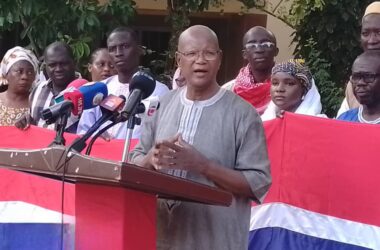
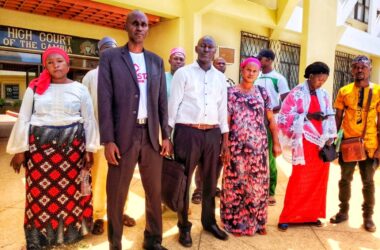
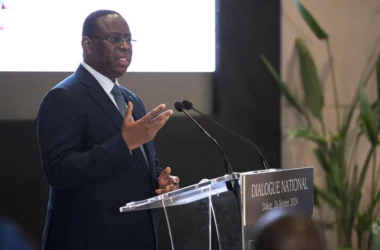
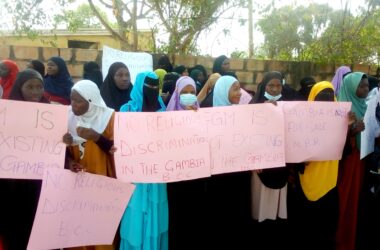



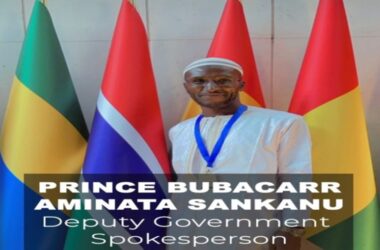

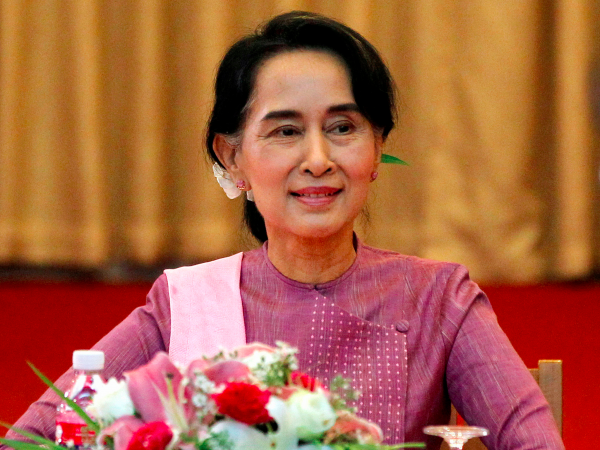
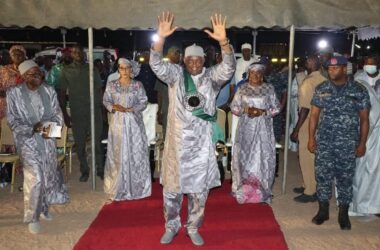

Perhaps the gaining of position was just a cheap trick to destroy the democratic process by the Generals. Once this hollow victory was granted, This brave lady, has become the first and only point of attention for such atrocities. I think Madam Aung san,,,,is between a rock and a hard place. Even Joan of Arc was burned at the stake.
God has a way of resolving such issues. Martyrs are two a penny these days. Saints appear much later, when the truth absolves all previous suspicions.